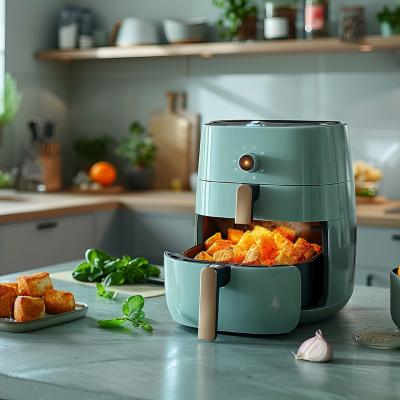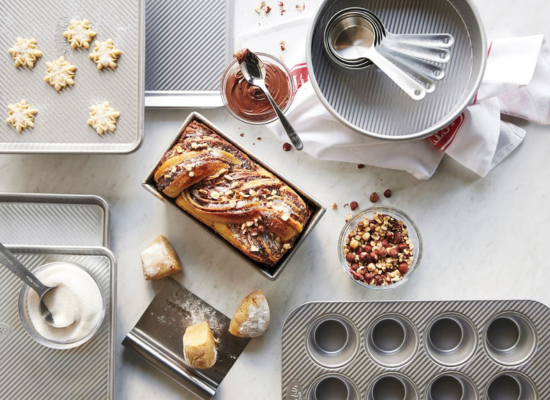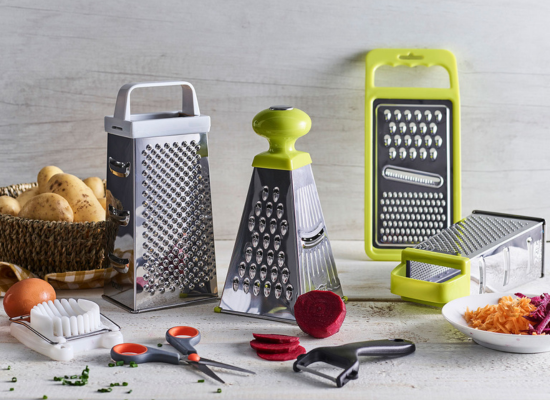
Do you ever wonder if it is safe to put empty glasses in the freezer? If yes, you are not alone. This is a popular question at an idle dinner-party conversation for people who like their glasses chilled before pouring a drink.
And the answer is,
"Yes, an empty glass will break in the freezer. This happens because when glasses are frozen, they contract and become brittle. It causes them to shatter easily when they are filled with liquid."
But don’t worry, We have got you covered! This guide we prepared will know everything you need to know about putting empty glasses in the freezer to avoid any ugly experience. So, without further ado, let’s get uncovering some facts.
The Reason Why an Empty Glass Break in the Freezer
There’s a scientific reason behind this phenomenon. When glass is heated, the molecules inside expand. When cooled, they contract.
However, if the glass is cooled too quickly (like in a freezer), the molecules don’t have time to adjust. So they contact faster than the structure of the glass can handle. This causes the glass to shatter.
So next time you’re tempted to put an empty glass in the freezer, resist! Your best bet is to fill it with water first – that way, the freezing process will happen slowly and evenly, and your glass will be safe from shattering.
Suitable Temperature for Empty Glass in the Freezer
There is no perfect temperature for glass to freeze. It depends on several factors, including the type of glass and the freezing method used. However, generally, glass temperature will need to be between 30 and 40 degrees Fahrenheit to freeze successfully.
If the glass is too warm, it may not freeze properly and could crack or shatter when exposed to frigid temperatures.
Conversely, if the glass is too cold, it may become brittle and susceptible to breakage. Ultimately, finding the perfect balance is key to successfully freezing glass.
LEARN MORE: How Long Can You Leave the Freezer Door Open
How Long Can We Leave a Glass in the Freezer Without It Breaking?
Glasses can and do break in the freezer, so you need to be careful. It will break or not; it depends on the type of glass. It’ll probably be fine for a few days if it’s thick, sturdy glass. It might only last for a few hours if it’s a thin, delicate glass.
You need to know a few things before keeping your glasses in the freezer. Most glasses can handle a quick stint in the freezer without any problems, but if you’re looking to store them for an extended period, it’s best to go with something more durable.
Glass is an excellent material for things like wine and shot glasses because it’s delicate. It can also add some flair to your drink, but it can often fall short of durability.
If you’re going to leave a glass in the freezer for a long time, make sure it’s wrapped well or placed in a container to prevent breakage.
If you’re going to be leaving an empty glass in the freezer for an extended period, it’s best to use tempered glass.
Tempered glasses are designed to withstand extreme temperature changes and are less likely to break than regular glasses. So, if you’re worried about your glass breaking, go with a tempered option.
6 Ways to Protect an Empty Glass From Breaking in the Freezer
It’s terrifying when you reach for a glass, shattering in your hand. There are a few things you can do to prevent this from happening.
1. Use a Freezer-safe Glass
It is important to note that not all glassware is created equal, and some may be more likely to break when exposed to extreme cold. Glasses with metal rims or accents are not ideal for freezing because the metal can become brittle and cause the glass to shatter.
Similarly, you should also avoid glasses with decorative features such as Swarovski crystals, as the crystals can fall off and break the glass. There are two main types of freezer-safe glasses.
Tempered Glass
Tempered glass is made by heating and then cooling the glass very quickly. This process makes the glass much more robust than regular glass.
However, Tempered glass is designed to shatter into tiny, harmless pieces if it breaks, making it a safer option than standard glass.
Borosilicate Glass
Borosilicate glass is made with boric oxide, making it more resistant to temperature changes. This type of glass is often used in scientific laboratories because it can withstand extreme temperatures. However, borosilicate glass can still break if it’s not used correctly.
Check the Rating of the Freezer Before Use
No matter what glass you’re using, make sure that it’s rated for the temperature of your freezer.
- Most tempered glasses are rated for -20 degrees Celsius, but some can go as low as -40 degrees Celsius.
- Borosilicate glasses are usually rated for -40 degrees Celsius, but some can go as low as -60 degrees Celsius.
2. Leave Space to Expand
When glasses are too close together in the freezer, they can knock into each other and break. And if they’re expanding too much, it puts extra pressure on the glass and can cause it to crack or shatter.
So next time you’re stocking up your freezer, consider using a storage container with compartments. That way, you can help keep them safe and sound for longer.
3. Leave the Lids Loose if They Have Any
Most people love to put their glasses in the freezer before pouring a cold drink into them. Leaving the lids loose is essential when you put glasses in the freezer. It will allow expansion and contraction of the glass as it warms up and cools down.
4. Avoid Glasses With Handles
You probably have a few glasses with handles in your cupboard. And while they may seem sturdy, those handles can make them more susceptible to breaking when you store them in the freezer.
That’s because glass expands when it gets cold, and the added pressure of the handle can cause the glass to crack or even shatter. So, opting for glasses without handles would be a wise decision.
5. Take Care of the Temperature
Glasses usually break in the freezer due to the temperature change. When you put a glass in the freezer, the sudden cold can cause it to shatter. To prevent this from happening, it’s essential to gradually change the glass’s temperature.
Start by putting it in a cool room for an hour or two, then move it to the fridge and the freezer. This will allow the glass to adjust slowly to the colder temperature and should help prevent it from breaking.
6. Put Breathing Room Between Glasses
When you put your glasses in the freezer, leaving a little breathing room between them is essential. If they’re crammed in too tightly, they can break when the ice expands. So make sure to give them a little space to avoid any accidents!
Of course, you don’t have to leave huge gaps in your freezer. A few inches between each glass container should be enough to keep them safe.
LEARN MORE: How Much Power Does a Chest Freezer Use?
Additional Tips to Protect Empty Glass From Breaking Inside the Freezer

Here are six more tips to protect an empty glass from breaking in the freezer:
- Use a rubber band or tape to secure the glass to the shelf.
- Place the glass on a coaster or plate before putting it in the freezer.
- Wrap the glass in a dish towel or paper towel.
- Place the glass in a zip-top bag before putting it in the freezer.
- Fill the glass with water and freeze it upside down.
- Place the glass in the freezer on its side.
You can help prevent your glasses from breaking in the freezer by following these tips. And if one does happen to break, at least you’ll know it wasn’t your fault!
Final Thoughts
So, will an empty glass break in the freezer? The answer is that it might. But don’t worry – with a few simple precautions, you can protect your glasses from breaking while they’re in the freezer. Follow our tips to keep your glasses safe and sound!
Always consider the temperature and amount of time a glass is exposed to frigid temperatures. We hope this article was helpful to you. Feel free to reach out to us as always with any questions or advice you have!



